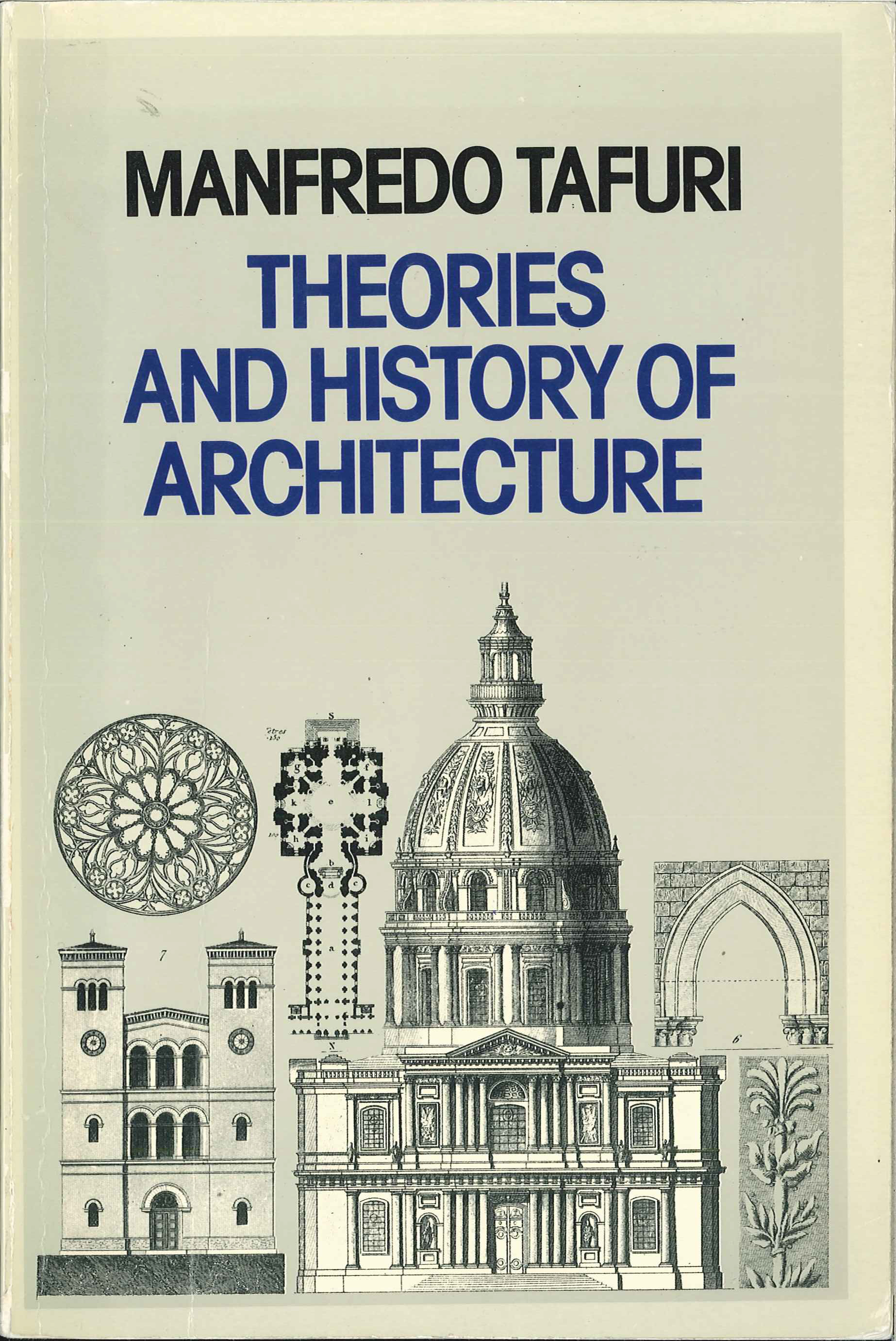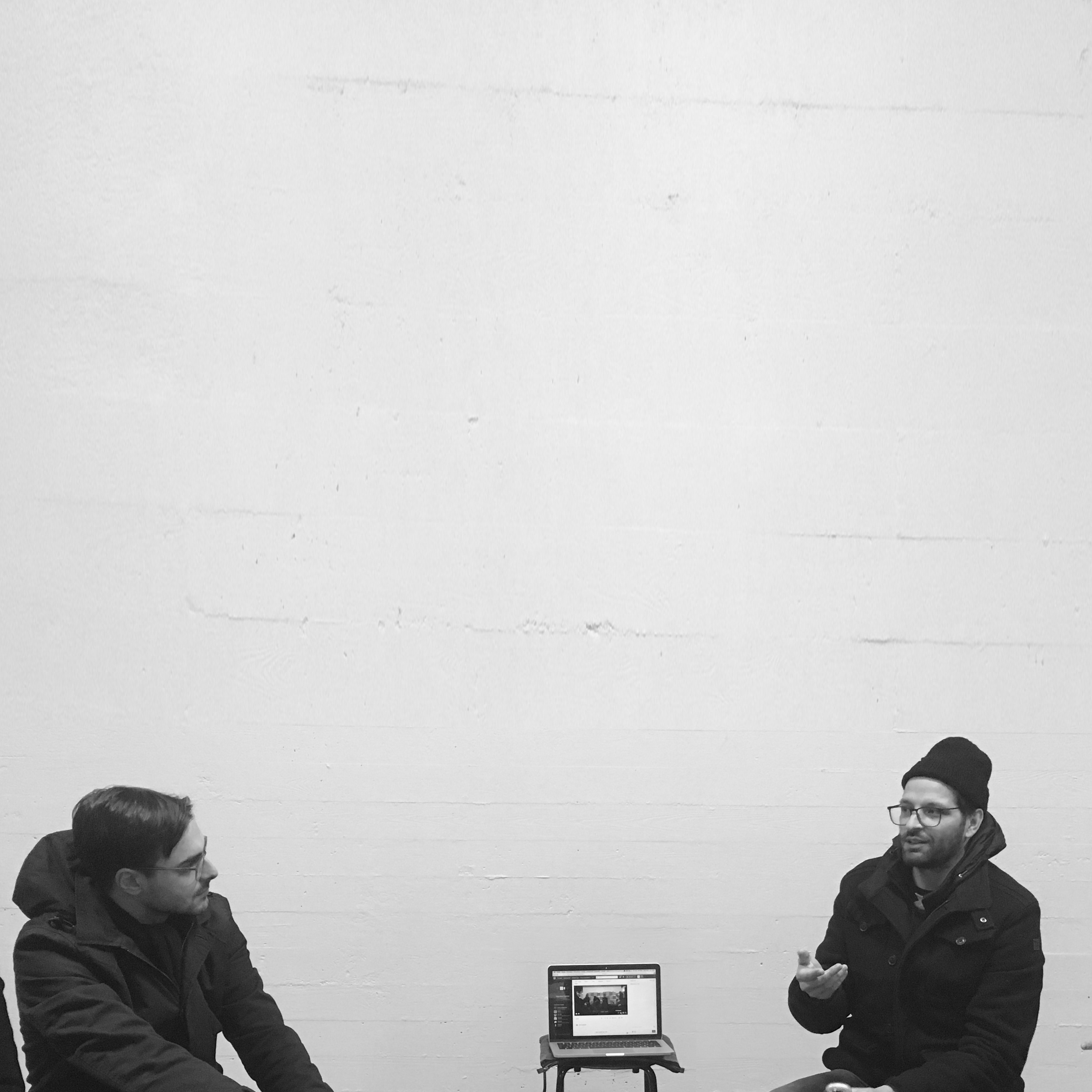Home
1 Manifesto
2 Program
3 Semesters
4 Sessions
5 Authors
6 Guest Curators
7 Events
8 TV
9 News
10 About
11 Search
1 Manifesto
2 Program
3 Semesters
4 Sessions
5 Authors
6 Guest Curators
7 Events
8 TV
9 News
10 About
11 Search
Semester I
ON REVOLUTION
Session 07 - 08
05.12.2018 - 30.01.19
Location: Lochergut, Zurich, CH
ON REVOLUTION
Session 07 - 08
05.12.2018 - 30.01.19
Location: Lochergut, Zurich, CH
Tafuri, Manfredo
1980
Theories and History of Architecture
London, United Kingdom
Granada Publishing Limited
1980
Theories and History of Architecture
London, United Kingdom
Granada Publishing Limited

Text Synopsis
The
problem of assessing contemporary architecture historically comes from its
initial choice: presenting itself as a radically anti-historical phenomenon”.
In this essay, Tafuri describes the Eclipse of History as the very essence of the “Modern” since the very beginning. He identifies in Leon Battista Alberti and Filippo Brunelleschi two fundamentally different paradigms of this dynamic, encompassing, as such, architectural history until now.
On the one hand, we find the philological approach, the precise reconstruction of the grammar of the classic and a negotiation with the past ages of Alberti.
On the other, the opportunistic deployment of the classical language aimed to formulate a new architecture, based on a high degree of rational “objectuality”, counteracts the medieval city with a brand new Ethos. In both cases, the figure of revolution appears and reveals its paradoxical meaning.
In this essay, Tafuri describes the Eclipse of History as the very essence of the “Modern” since the very beginning. He identifies in Leon Battista Alberti and Filippo Brunelleschi two fundamentally different paradigms of this dynamic, encompassing, as such, architectural history until now.
On the one hand, we find the philological approach, the precise reconstruction of the grammar of the classic and a negotiation with the past ages of Alberti.
On the other, the opportunistic deployment of the classical language aimed to formulate a new architecture, based on a high degree of rational “objectuality”, counteracts the medieval city with a brand new Ethos. In both cases, the figure of revolution appears and reveals its paradoxical meaning.
About the Author
Manfredo
Tafuri (Rome, 4 November 1935 – Venice, 23 February 1994), was an Italian
architect, historian, theoretician, critic, and academic. He was described by
one commentator as the world's most important architectural historian of the
second half of the 20th century. He is noted for his pointed critiques of the
partisan "operative criticism" of previous architectural historians
and critics like Bruno Zevi and Sigfried Giedion and for challenging the idea
that the Renaissance was a "golden age", as it had been characterized
in the work of earlier authorities like Heinrich Wölfflin and Rudolf Wittkower.
Tafuri
ManfredoManfredo
1980
Theories
History
Architecture
TheoriesandHistoryofArchitecture
London
UK
GranadaPublishing
EclipseofHistory
Eclipse
Modern
LeonBattistaAlberti
Alberti
FilippoBrunelleschi
Brunelleschi
Classic
Language
Classicallanguage
Objectuality
Medievalcity
Partisan
Operativecriticism
Criticism
Renaissance
ManfredoManfredo
1980
Theories
History
Architecture
TheoriesandHistoryofArchitecture
London
UK
GranadaPublishing
EclipseofHistory
Eclipse
Modern
LeonBattistaAlberti
Alberti
FilippoBrunelleschi
Brunelleschi
Classic
Language
Classicallanguage
Objectuality
Medievalcity
Partisan
Operativecriticism
Criticism
Renaissance
